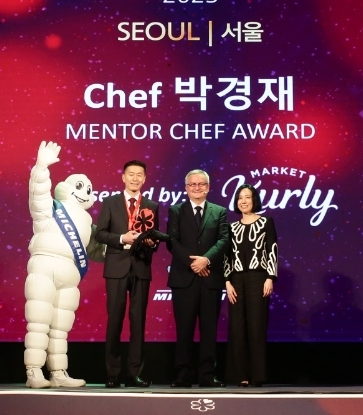Sometimes inspiration is right in front of you, and sometimes you have to travel further to find it. That’s the case for Chef Shin Chang-ho, who hits the road every week in search of food ingredients that reflect the ever-changing seasons of Korea. Chef Shin is the chef-owner of Joo Ok, which has retained its 1-MICHELIN Star for four consecutive years since appearing in the 2018 edition of Michelin Guide Seoul. Sharing his journey with Genesis and Michelin, Chef Shin shows us how his cuisine reveals a distinctive Korean sensibility and modern beauty.

Chef Shin visits Kyungdong Market every week, where diverse food ingredients from all over the country are gathered. "Every season, we're still learning by discovering new ingredients. Rich ingredients are the biggest source of inspiration, from endless Korean seasonal wild greens and bamboo shoots, to various medicinal herbs and wild edible mushrooms such as song-i. It's a must-visit place for a chef," he explains.
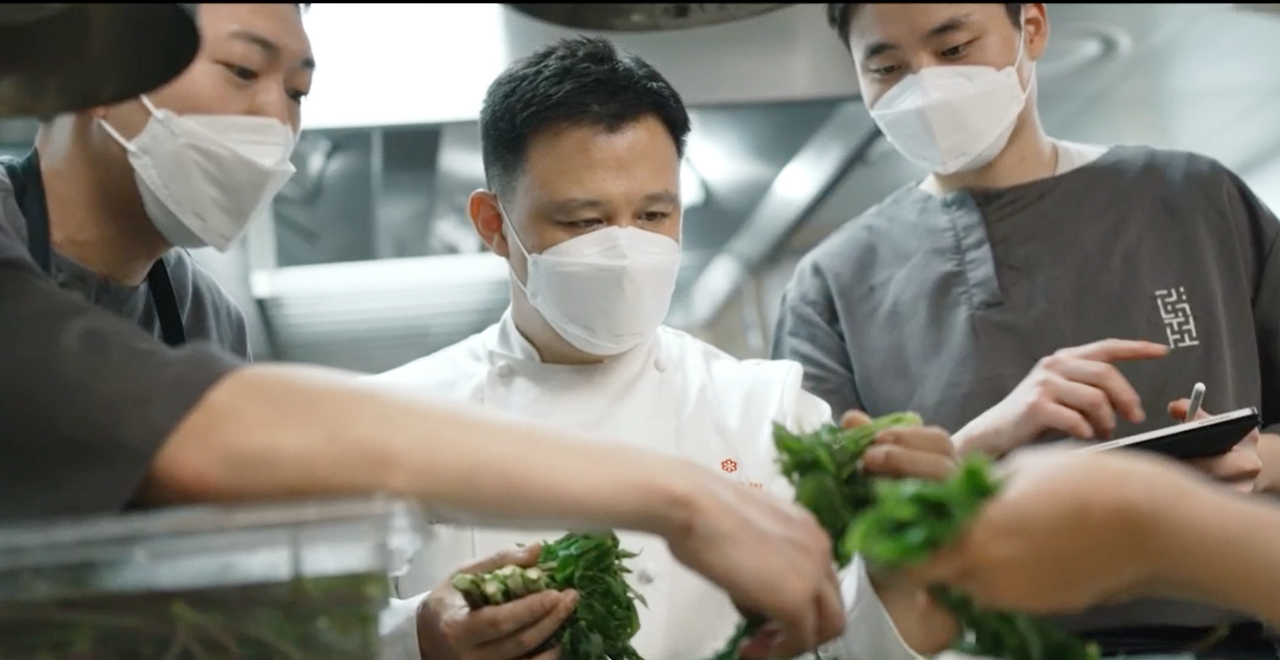

Farms located in Namyangju also serve as the source of various ingredients. "We harvest a variety of edible flowers and special vegetables that vary from season to season. It's very helpful to learn the flow and circulation of nature when you go to the farm yourself. For example, I thought dill leaves were the only usable part of the plant but at the farm, I found it was much more useful. The sprouts can be used as herbs, and they have edible flowers as well. Finally, we can use its fruit for cooking. This kind of experience is very helpful in menu development and creative thinking."

Chef Shin Chang-ho had long considered his restaurant’s name, to convey the meaning of a place where guests enjoy sincere food. At first, he proposed foreign names but when the Korean word joo ok, meaning ‘a very precious thing’ popped up in his mind, he settled on this name.
"The moment I thought of the name Joo Ok, I knew it was just right. It was easy to pronounce and it showed what I was aiming for. The restaurant's name is Joo Ok, meaning that the chef's hard work is a jewel in itself, and it's a jewel-like restaurant."
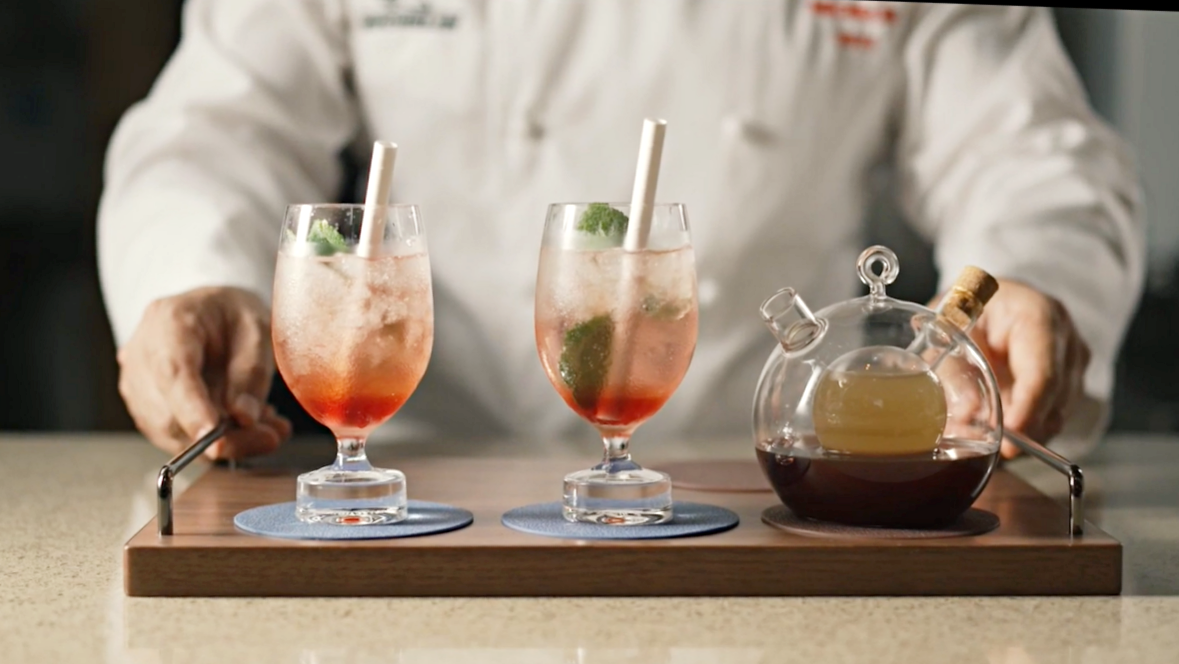
He is exploring the possibility of familiar but new Korean cuisine in this restaurant. “For this special Genesis and Michelin collaboration, we’ll welcome diners with sansahwache (hawthorn fruit tea) and a seasonal vinegar drink that has stood the test of time,” chef describes.
"I would like to show you a dish made in Joo Ok's style by carefully handling seasonal ingredients that can show the four seasons of Korea. Korean jang and fermented vinegar are indispensable ingredients in our cuisine."
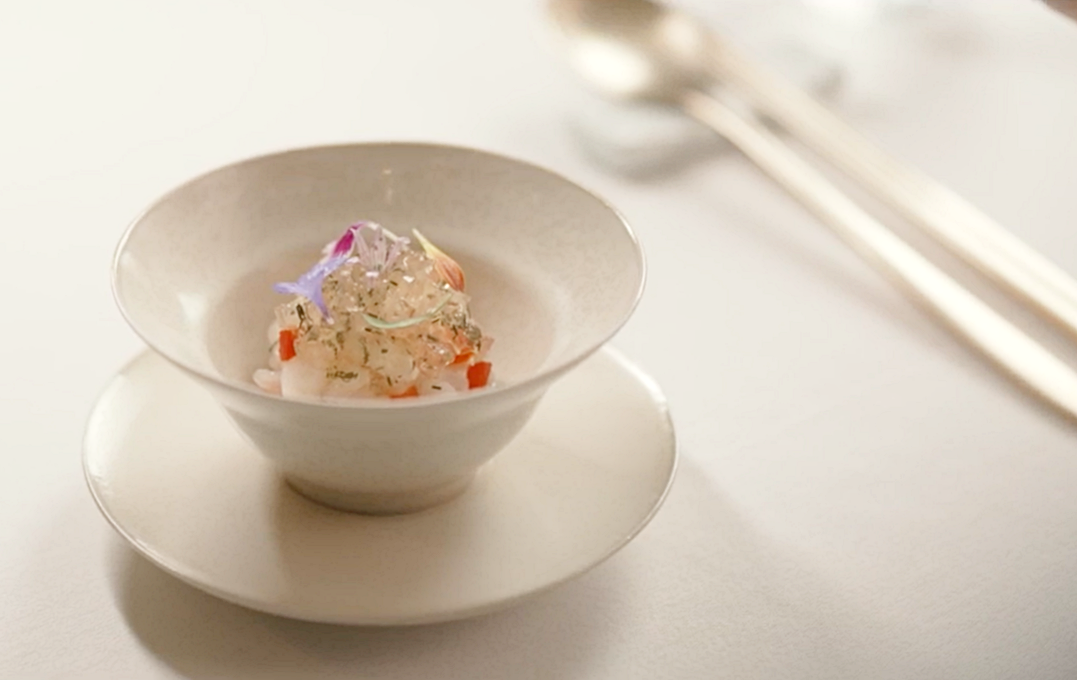
Joo Ok’s Dohwa (coonstripe) shrimp
Dohwa (coonstripe) shrimp is garnished with tomato jelly, paprika and seasonal Korean melon; this dish is a vibrant reminder of summer. Chef Shin explains that this menu is inspired by the concept of ‘delicious freshness’. Joo Ok’s house-made ginger vinegar of is mixed with the shrimp, charcoal-grilled paprika and melon to boost the sweet taste of the ingredients, and to express the refreshing flavors through tomato jelly. All these ingredients are now in season.
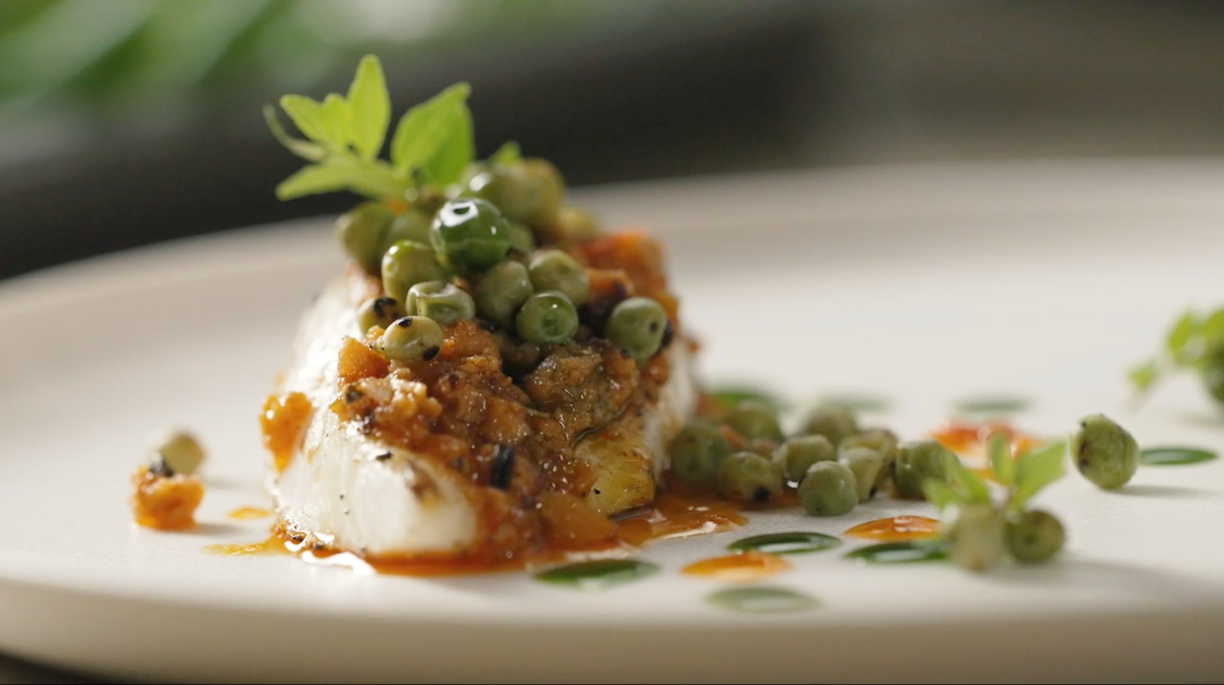
Joo Ok’s grilled deokja (pomfret)
Grilled deokja (pomfret) is accompanied by octopus and pepper paste sauce. This menu will add more layers to thejourney of flavors. Deokja is the most delicious fish in summer; here it is grilled over charcoal to release its juices. The pepper paste sauce is made with octopus from the East Sea of Korea. In particular, the sauce expresses the spiciness of Korean cuisine in an attractive way, showing the modern Korean culinary style pursued by Joo Ok.
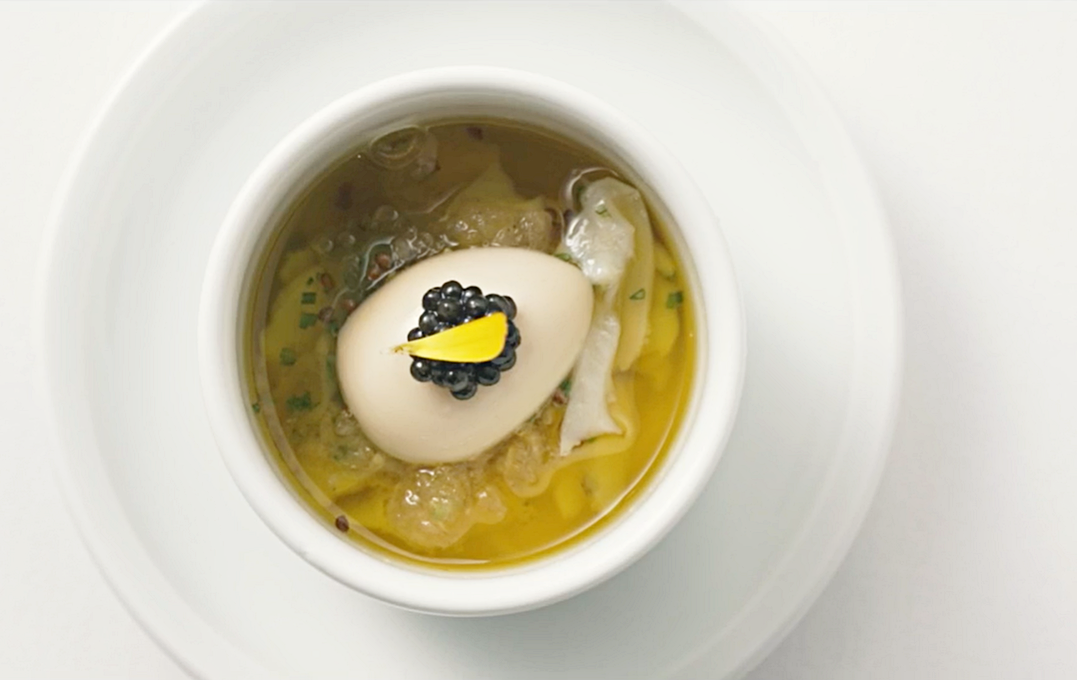
This Article is written in Korean and English by Julia Lee and sub-edited by June Lee in English.











